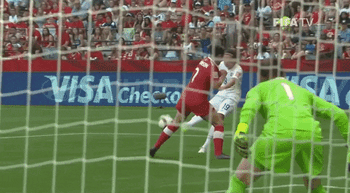College sports Q&A third edition

Q: How many years does a college athlete have to play in the NCAA before going pro?
A: This varies by sport and is dictated by the pro league in question, not the NCAA. For instance, the NFL does not allow draftees straight out of high school, and the NBA requires that rookies are at least 19 years old and have one year of college competition (except players from international leagues, like Wemby) — a controversial difference from the WNBA’s four-year requirement.
- The NHL, NWSL, MLS, and MLB all allow high school graduates to enter their drafts, but with idiosyncratic restrictions. Individual sports like golf and tennis require pros to forfeit college eligibility, and they usually can’t participate fully in their tours until age 18.
- Athletes Unlimited rarely allows players with remaining college eligibility to be drafted. As for competing on U.S. national teams, athletes can participate without affecting their NCAA eligibility — a huge relief for fans of the aforementioned softball stars.
Go deeper: Some current NCAA athletes, like UCLA women’s hooper Charisma Osborne, are choosing to exhaust their bonus eligibility instead of going pro because their NIL valuations exceed their potential rookie salaries — not to mention top colleges provide better amenities, like private flights and dedicated facilities, than some leagues.
- This could be a boon for the NCAA because retention of the best talent equals more exciting collegiate competition. However, it also could limit underclassmen’s growth as fifth- and sixth-year vets hog roster spots and starting positions.
Are there college sports topics you’d like to understand better? From “Who’s going to be the king of college football this fall?” to “Why are the Cavinder twins doing WWE?” — ask us anything NCAA using this two-question survey.
Enjoying this article? Want more?

Sign up for The GIST and receive the latest sports news straight to your inbox three times a week.

